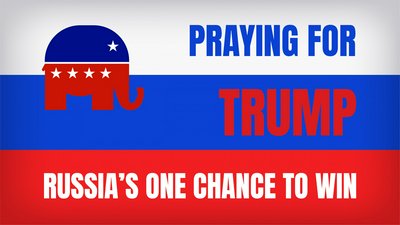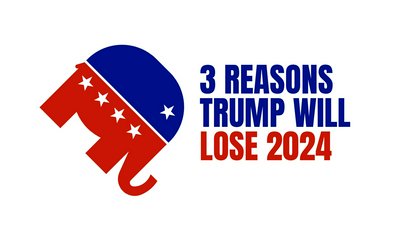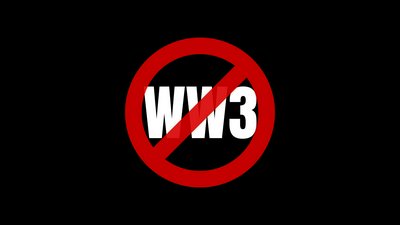economyParis
The Death of a Paradigm: The Human, Economic, and Long-Term Social Costs of Coronavirus
As the COVID-19 pandemic continues to aggravate, the mid- to long-term economic and social costs will be tremendous. Dramatic changes in the economic and soc...
Published by Dr Jiulin Teng on 19 Mar 2020 · Updated on 25 Jul 2021

As the COVID-19 pandemic continues to aggravate, the mid- to long-term economic and social costs will be tremendous. Dramatic changes in the economic and social paradigm will likely ensue this "black swan event" across the globe.
Nous sommes en guerres—as Emmanuel Macron, the French President, clumsily repeated ten times that "we are at war", he touched on a concerning parallel that took place just over a century ago: The COVID-19 (coronavirus) pandemic bears striking resemblance to the Spanish flu, at a time of widening economic and social inequalities in and between regions and of, in this case global economic, war. In this article, I briefly discuss what we know and don't know about the human costs that, due to incomplete information and (in hindsight) mismanagement, are bound to mount. Then, I focus on the prodigious damage this pandemic is set to cause our economic and social systems.
Human Costs
Currently, data shows that the mortality rate of COVID-19 is around 2%, though it's also known that many with light or no symptoms are unaccounted for. Studies have shown that the incubation period averages at just over 5 days, with the 99th percentile at 14 days. Still, anecdotes of confirmed cases well after 14-day quarantines are plenty. A rational person cannot help but ask: Are those cases the results of exposures prior or after the quarantine period? More broadly, the question is this: Can we ever be sure that an interaction with someone with no symptom will not transmit the virus?
The only way, in my opinion, to be sure is to blanket-test a large, representative population, isolate them, and monitor the progression for a month, because this is the only way that we can get the complete data on which informed decisions can be made. Since this is impossible, all decisions are gambles.
Currently, countries are introducing broad lockdowns. The rationale here is simple: if the virus needs human contacts to spread, eliminating said contact should stop it, too. This approach seems to have worked in East Asia. In most countries, however, these measures may have been introduced too late: Lockdowns do not completely eliminate human contacts. If the asymptomatic virus-carrying base is large enough, even reduced contacts would not be enough to stop exponential growth. This is possible only because the majority infected have little to no symptom. Such is the "point of no return".
A phrase that floated around last week is "herd immunity". The strategy named after it and proposed by the UK government faced massive backlash, and the British had to renege. However, it remains possible that this (in hindsight) is the right approach.
The rationale for the "herd immunity strategy" is more complicated: If we accept that this virus will not be eliminated completely, it is better to build up immunity against it at the population level. Obviously, doing so via vaccination is more palatable and politically responsible. However, with vaccines still a year-or-so's time away, it is not a viable option at the moment. More importantly, this virus may very well come back after any lockdown is lifted, and almost certainly next year around the same time, like the seasonal flu.
Then, there is the parallel with the Spanish flu, which killed much more people in the second wave than the first. The trenches of WWI provided the hotbed for this more serious strain: [paraphrased from Wikipedia] Normally, people who catch a serious virus strain stay home, while those mildly ill move around; the selection pressure favors the mild strain. During wartime, the mildly ill stayed in the trenches, while the serious cases were carried to the hospitals. With the "lockdown" strategy, we are recreating the trenches of WWI, and the hospitals could become where the virus mutates and becomes deadlier, in time for the lift of lockdown to reoccur.
Many have been talking about the shape of the time series. The idea is that a flatter peak that does not overwhelm the healthcare system reduces the number of casualties. This concern complicates the situation more: It makes the original British approach completely unacceptable.
However, if after the lift of lockdown, a second, deadlier wave recurs, the population would have no immunity, and the already strained healthcare system will certainly be unable to cope.
What I'm suggesting, with so many words, is that it is possible that letting a relatively mild (I'm in no way saying it's not serious; it's only possibly mild in relative terms) pandemic run its course could in hindsight be preferable. The British elites are known for their rationality. In their calculation (aka gamble), taking into account the probability of a deadlier second wave, they must have decided that the total cost to the nation would be lower with their original strategy.
Obviously, if the virus doesn't mutate to a deadlier strain, the lockdown strategy would be the preferable option to reduce mortality. If there are a much larger undetected population who have immunity through contact with the virus (having shown little to no symptoms) than originally thought, lockdown is also preferable in saving lives.
WWI: A Digression
Particularly ominous of today's situation are the parallels that we can draw from the conflict that ended just over a century ago:
- Regional inequality remains high. While some "developing" countries, especially China, has had tremendous growth, most have experienced little economic, political, and social development.
- Internal inequality, economic, political, and social, has exacerbated in the past decades following the conclusion of the Cold War on both sides.
- Nationalism has been on the rise, and global interventions, the hallmark of imperialism, are as common as ever.
- Economic war among major economies is a reality. Fueled by rising nationalism in key countries, international solidarity seems to be wishful thinking.
Under these circumstances, the poor will bear the blunt of the human and economic costs of this pandemic. Further, it is possible that in some countries measures to combat coronavirus (i.e. lockdown) could be the final straw that breaks the social order we've been fighting to preserve.
Economic Costs
United States of America
US economy has just ended its longest expansion in history. During this prolonged period of growth, however, income inequality deepened: real wage of American workers has barely increased since the 1980s, while the rich has reaped almost all the benefits of globalization, loose monetary policies, and top-down fiscal policies. For a couple of years, some have pointed to these deep-rooted structural problems as concerns that could lead to a crisis worse than that of 2008.
A key theme in US economy has been the privatization of profits followed by the socialization of losses. The Federal government is poised to bail out the aviation and fossil fuel industries. In the meantime, the Federal Reserve has already injected trillions and lowered interest rates to a hair above zero. These moves have not stabilized the stock market, which is going through unprecedented fall right now.
Normally, the stock market would start recovering once the bottom of the economy becomes clear. Today, uncertainties surrounding the pandemic mean that exactly how hard the economy gets hit is impossible to predict (unlike 2008 when we had a relatively complete picture of the debt situation and were simply projecting the recovery, the coronavirus can mutate in ways completely unpredictable to economists).
We could get lucky, and the virus becomes less deadly as it spreads and the economy recovers quickly; we could also get unlucky, and the market will not find stability in the foreseeable future.
Many industries and millions of jobs are at risk, and they don't all hold the strategic importance for the government to bail them out: Hospitality (in particular tourism) and retail industries will see massive cuts. The automotive industry is likely to experience lower sales numbers (though they'll be bailed out). As the economy slows down, jobs in other industries are also at risk.
Workers who are made redundant in these times are also the ones who are underprivileged to begin with. The calamities will be immense.
European Union
In comparison, the economy has barely recovered from 2008 in the European Union. This has already led to the rise of nationalism across the continent. Continued "lockdown" is certainly going to crash EU economy. Plagued by inflexible and inefficient regulations, it will take the most hard-hit countries such as Italy and France at least a decade to recover (not that their GDPs before this crisis are higher than in 2008 anyway).
All the sovereign debt and currency problems that EU has had to deal with (with little success) will pop up on the headlines once the pandemic recedes.
Similar to the US, jobs across many industries will be lost, and vital industries such as tourism will take years to recover (as people become accustomed to staying home, at least in the short-run). Unlike the US, however, inflexibility means that companies will have a harder time to turn around—while foreign competition will encroach EU domestic markets.
Under these circumstances, in a time of rising nationalism, it is my prediction that EU will introduce protective policies en masse. Manufacturing industries may be involved (insofar as they exist in EU, such as the automotive and aviation industries). More importantly, EU will introduce protective policies in the tech industry: This is because the tech industry will be the least hit (people will use their products and services even more) and because it is the easiest (read least capital-intensive) to start businesses here.
Don't be surprised if the EU slams anti-trust cases on all leading US tech firms (if it isn't already the case) and eventually push them out for "national security" reasons, just as the Chinese have. If managed well, the EU could become, for a brief moment, the place for tech startups that essentially copy foreign innovations.
China
If China can contain future waves of COVID-19, it could be in comparatively better form. However, if it succumbs to possible future, deadlier strains of the coronavirus, things could be highly unpredictable. To China's advantage, it has already set up a complex network of surveillance systems (using AI) that has been used to track down the spread of the initial outbreak. With experience and an essentially authoritarian system, China is likely to cope future waves better than many countries.
Still, the same industries that have been hit elsewhere have already been hit in China. With rising nationalism, in particular protective policies across the globe, I predict that China will have to finally pull itself together and complete the transformation from an export-driven economy to consumption- and service-driven economy.
In the past decade, the prime structural problem in the Chinese economy, besides overcapacity of low-end manufacturing, has been in residential real estate. As the Chinese economy transforms itself, I predict that the real estate industry will become more focused on commercial real estate. As the population ages, astronomical housing prices based on little more than price speculation are likely to go down (read crash).
Rest of the World
As major economies are deeply tangled in own problems, developing economies will have to deal with their own issues in the context of receding globalization. Countries that used to lead humanitarian efforts will become increasingly inward-looking. As a result, developing economies, which probably will suffer the highest humanitarian costs directly from the COVID-19 pandemic, will have the hardest time to recover.
Social Costs
The social costs of the COVID-19 pandemic are what I'm most concerned about, especially at a time of rising nationalism. In reducing the spread of the virus, many countries have introduced measures that temporarily reduce civil liberties; to control medical resources, some have also placed export bans on them. There is little doubt that norms of social lives and international relations are being intentionally broken.
The hard question is, will these norms be restored? Can they? This traumatic event, following the crash of 2008, is almost certainly going to rob an entire generation of much upward movement in society. A couple of divergent directions may be taken if old norms could not be restored:
Conventional wisdom holds that the more prosperous a society is the more open it is likely to be. Scared by the pandemic, and possibly accustomed to reduced civil liberties, will more countries find peace in authoritarianism, especially when strong state controls may be the most efficient way to combat crises like we're experiencing? Keep in mind that some of the countries currently hardest-hit have bureaucratic tendencies (which ironically could be a factor that resulted in slow response). The difference for ordinary people between bureaucratic (and perhaps insensitive) democracies and authoritarian systems may be minimal.
Were we to enter a decade-long depression, which in my opinion is unlikely but which has been mentioned by some, this could be an interesting tradeoff. Under Stalin, the Soviet Union did really well during the Great Depression. Obviously, some of his decisions had led to great tragedies, but 21st-century authoritarian (read communist) systems probably will not repeat massacres and genocides.
The other direction is, I'm afraid, another type of authoritarian system, one marked by populism and nationalism, both already winning elections left and right. Should the pandemic invalidate old norms of global solidarity further, it is possible that some major countries could commit to such system, perhaps with devastating effects.
Predictions
- Here is a list of predictions:
- When it's all over, the poor and underprivileged will have suffered disproportionately more.
- Markets cannot be stabilized before the pandemic is understood and under control.
- In the US, strategic industries will be bailed out, while others will be left out.
- Euro crises and EU sovereign debt crises will come back worse than before. Defaults are likely.
- EU will introduce protective policies in manufacturing and most importantly in tech.
- China will be forced to complete the transformation of its economy.
- This transformation does not bode well for China's housing bubble.
- In some countries, the society will not be the same after this pandemic. Some loss of civil liberties is likely.
- We must be vigilant against unrestrained nationalism.
Epilogue
Human lives are being lost. Beware, however, that the human costs are only the beginning of the fallout. The decades-long worsening of inequalities across major economies, the threat of technology (not touched on in this article), and problems with global resources (including global warming and the depletion of fossil fuels as well as vital mineral) portend a more inward-looking future. If we don't stay vigilant and perhaps exchange economic growth for civil liberties, we may well succumb to our authoritarian instincts. Unrestrained nationalism could spell disaster, as disaster happened in the first half of the 20th century.
This could really be the end of the globalist paradigm.



